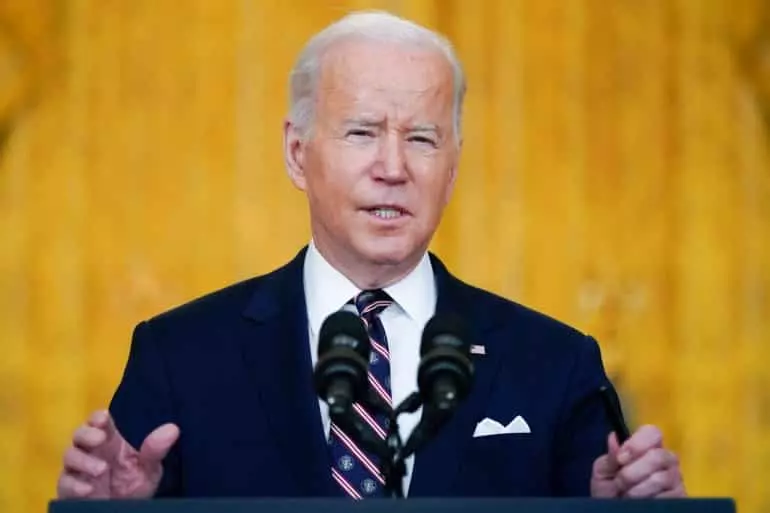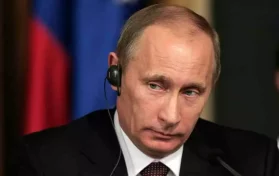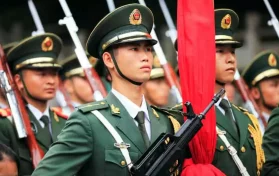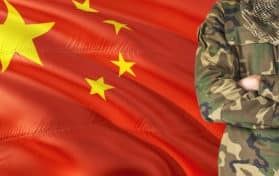
Earlier this week, prior to the Russian attack that took place Thursday in the Ukraine, President Joe Biden had imposed sanctions on two Russian banks, limited certain exports from Russia, and tightened restrictions meant to put a financial wallop on Russian oligarchs who are in business with Putin. These initial sanctions did little to deter Putin, as proven when he sent troops into Ukraine.
On Thursday afternoon, President Joe Biden took to the stage to announce a second set of sanctions that some say are quite powerful, while others claim the sanctions still aren’t strong enough.
The Treasury Department says that the latest sanctions target Russian banks which hold approximately eighty percent of the nation’s financial assets. The state-owned SherBank and VTB hold almost $750 billion in Russian assets. The sanctions cut the banks from the U.S. dollar, which could cost the country tens of billions of business each day.
Another measure will limit how Russian businesses, both private and state-owned, can raise money for operations and investments.
Some sanctions target Russian “elites,” who are considered “powerful associates of Putin.” These individuals may have ties to Putin via politics, security, or financial means.
One type of sanction deals with technology that the United States offers Russia. The Biden Administration’s sanctions limit how Russia can obtain semiconductors. The country won’t be able to get them from the United States for an indefinite period. This is a sanction that is aimed at weakening Putin’s Russian military. Biden says that the goal is to keep Russia from fully utilizing “more than half of its current high-tech,” which will affect the Russian military, the Russian aerospace industry, and Russia’s shipping industry.
Russia uses semiconductor chips and technology to utilize warplanes and passenger jets, utilize smart phones, run any number of software applications, and utilize advanced electronic gear that we take for granted in the modern world.
According to President Biden, Western allies in the European Union as well as Japan are cooperating in placing these sanctions on Putin’s regime. These sanctions place Russia in a group of countries with the most restricted export terms in the world: Cuba, North Korea, Syria, and Iran.
It’s important to realize that the sanctions limit Russia’s ability to procure integrated circuits as well as the products that contain them (smart phones, computer chips, etc.) Typically, the United States leads the way in the production of these integrated circuits. Items in addition to smart phones include machine tools, televisions, computer tablets, gaming consoles, and aircraft avionics.
The only downside to these sanctions is the idea that Russia could turn to China in an effort to procure integrated circuit technology. China’s President Xi has yet to condemn the Russian invasion of the Ukraine, and some Chinese diplomats have said that the United States should continue to pursue diplomatic means of resolving the conflict.
President Biden also told the press today that “no one expected the initial sanctions to be a deterrent;” some critics have answered that sanctions are typically the definition of a deterrent.
Today, President Biden was questioned about the sanctions possibly propelling President Putin into more economic trade with President Xi and China. At the time, President Biden chose not to comment. Later, Senator Minority Leader Mitch McDonnell spoke on the same topic, but his comments showed a palpable concern for the effect these sanctions could have on the relationship between China and Russia. McConnell stated that he felt President Xi was watching the events as they unfold, and our actions regarding the Russian invasion into the Ukraine could embolden Xi where Taiwan in concerned.
Reports earlier Thursday told of rumors that Chinese planes had flown over Taiwan overnight, but these reports have yet to be confirmed. Xi has shown some signs of aggression toward Taiwan within the last six months, including flyovers such as those rumored to have taken place overnight. Taiwan maintains it is a sovereign nation, while China says Taiwan is a part of the Chinese nation.





